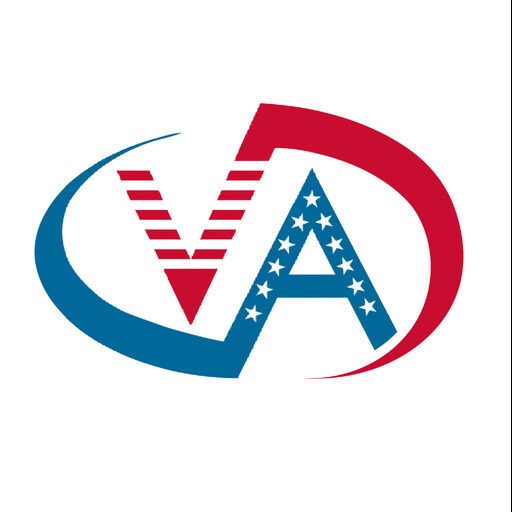Transitioning from military service to civilian life can be both challenging and rewarding.
For many Veterans, entrepreneurship offers a unique opportunity to apply the skills they honed during their service—such as leadership, resilience, and strategic planning—into building a successful business.
This guide explores how Veterans can start a business, provides insight into the current housing market’s influence on entrepreneurship, and shares statistics to give context to the journey from service to startup.
Why Veterans Make Great Entrepreneurs
Veterans possess a skill set that is highly transferable to the business world. Some key traits that set Veteran entrepreneurs apart include:
- Discipline and structure: Essential for managing daily operations, meeting deadlines, and setting strategic goals.
- Adaptability: Military training prepares Veterans to pivot and respond to unexpected challenges quickly.
- Leadership skills: Veterans often have experience leading teams, making them natural business leaders.
- Strong work ethic: Veterans are accustomed to long hours and mission-driven work, qualities essential to growing a startup.
These inherent traits, combined with the availability of support programs, make entrepreneurship a viable career path for many Veterans.
Key Steps to Start a Business as a Veteran
-
Identify Your Business Idea
- Leverage your expertise or hobbies.
- Research gaps in the market and opportunities for niche businesses.
- Develop a Business Plan
- Outline your mission, goals, and target audience.
- Include financial projections and funding sources.
- Explore Funding Options
- Veteran-specific funding: Programs like the Small Business Administration (SBA) Veterans Advantage offer reduced fees for loans.
- VA Loan Cash-Out Refinancing: Veterans can refinance their home loan to pull out equity, which can serve as startup capital.
- Register Your Business
- Choose a business structure (LLC, corporation, sole proprietorship).
- Obtain the necessary permits and licenses based on your industry.
- Take Advantage of Veteran Support Programs
- Veterans Business Outreach Centers (VBOCs): Offer workshops, business planning assistance, and mentorship.
- Boots to Business Program: An entrepreneurship training program from the SBA designed for transitioning service members.
- Network with Other Entrepreneurs
- Join local and national Veterans’ business associations.
- Attend conferences and seminars designed for Veteran entrepreneurs.
Programs and Loan Options
Veterans have access to several programs and loan options designed to support their entrepreneurial journey. These resources provide financial assistance, training, and mentorship to help Veterans successfully start and grow their businesses.
- Boots to Business
- An entrepreneurship training program by the Small Business Administration (SBA) for Veterans and transitioning service members. It offers foundational business courses and workshops to help develop business plans and connect with mentors.
- Veterans Business Outreach Centers (VBOCs)
- VBOCs provide training, mentoring, and counseling to Veterans at every stage of their business development. Services include feasibility analysis, business planning, and resource connections.
- SBA Veterans Advantage Loan Program
- This SBA loan program offers reduced fees and flexible terms for Veterans. It is available for various business needs, including startup costs and expansion capital.
- Hivers and Strivers Angel Fund
- A venture capital fund that invests in early-stage startups led by military Veterans. It focuses on supporting Veteran entrepreneurs with both capital and mentorship.
- Patriot Express Loan Program (Currently discontinued but still honored by some lenders)
- While the SBA no longer actively promotes this loan program, some lenders continue to provide Patriot Express loans under legacy terms, offering competitive interest rates and streamlined applications for Veterans.
- StreetShares Foundation
- Offers small business grants for Veterans through the StreetShares Foundation’s Veteran Small Business Award. Veterans can apply for grants and access business coaching through this initiative.
- Bunker Labs
- Bunker Labs provides training programs, events, and mentorship opportunities for Veterans and military spouses interested in entrepreneurship. It also offers co-working space access through its national network.
- LiftFund Veteran Startup Loans
- LiftFund offers microloans specifically for Veteran-owned startups, providing funding of up to $50,000 with lower-than-average interest rates and flexible payment terms.
- Veteran Women Igniting the Spirit of Entrepreneurship (V-WISE)
- V-WISE is a program by Syracuse University’s Institute for Veterans and Military Families (IVMF), focusing on entrepreneurship training for female Veterans. It includes online and in-person business development courses.
These programs and loans provide valuable financial assistance, training, and mentorship to help Veterans build successful businesses. Whether you're looking for startup funding, networking opportunities, or strategic guidance, these resources are designed to support every step of your entrepreneurial journey.
Key Veteran Entrepreneur Statistics
- 5.9 million Veterans own small businesses in the U.S., accounting for 10% of all businesses nationwide.
- 82% of Veteran-owned businesses are classified as microbusinesses, with fewer than 10 employees.
- The SBA reports that more than 25% of transitioning service members express interest in starting a business.
- Veterans tend to generate 5-10% higher revenue than their non-Veteran peers, largely due to their disciplined approach to operations and planning.
Benefits and Challenges Faced
Benefits:
- Access to VA and SBA programs: Reduced loan fees and access to grants.
- Community support: Veteran networking groups and mentorship programs.
- Skill application: Veterans can leverage their military expertise in business settings.
Challenges:
- Limited access to traditional financing: Despite support programs, some Veterans struggle with credit issues post-service.
- Navigating the learning curve: Starting a business involves legal, financial, and operational hurdles.
- Housing market impact: Fluctuating mortgage rates and home values affect Veterans' ability to use home equity for funding.
Tips for Success as a Veteran Entrepreneur
- Take advantage of mentorship programs such as the Boots to Business program to shorten the learning curve.
- Monitor housing market trends if you're considering using home equity for business capital. Use tools like Zillow or Realtor.com to stay updated on local property values.
- Leverage community resources like local Chambers of Commerce or Veterans’ business associations to build a network.
- Keep personal and business finances separate by opening a dedicated business bank account and applying for a business credit card.
Funding Options for Veteran Entrepreneurs
| Funding Option | Details | Eligibility |
|---|---|---|
| VA Loan Cash-Out Refinance | Allows Veterans to convert home equity into cash for business purposes. | Homeowners with VA loans |
| SBA Veterans Advantage Loan | Reduced fees and flexible terms for Veteran entrepreneurs. | Veterans and active-duty military personnel |
| Grants for Veterans | Federal and state grants targeted at Veteran-owned businesses. | Veteran status required |
| Microloans | Small loans designed for startups and microbusinesses. | Startups with fewer than 10 employees |
Frequently Asked Questions
1. What is the Boots to Business program?
The Boots to Business program is an entrepreneurship training initiative from the SBA designed for transitioning service members. It offers workshops and resources to help Veterans start and grow their businesses.
2. Can I use my VA loan to start a business?
No, a VA loan cannot be used directly to start a business. However, Veterans can use VA loan cash-out refinancing to pull out home equity and invest it in their business.
3. What financial resources are available for Veteran entrepreneurs?
Veterans have access to SBA loans, state grants, microloans, and crowdfunding platforms. Some banks also offer business loans with reduced fees for Veterans.
4. How does the current housing market affect Veteran business owners?
With higher mortgage rates, it’s more expensive to refinance homes. However, Veterans with existing home equity can still access cash through VA loan refinancing.
5. Do Veteran entrepreneurs receive any tax benefits?
Yes, Veterans may qualify for certain tax breaks, including exemptions on property taxes in some states and deductions for business expenses.
6. What percentage of U.S. businesses are Veteran-owned?
About 10% of all businesses in the United States are owned by Veterans, highlighting their significant presence in the entrepreneurial community.
7. Are there grants specifically for Veteran-owned businesses?
Yes, there are several grants, including those from the SBA and other state-level programs, designed to support Veteran entrepreneurs.
8. How do Veterans find mentors for starting a business?
Veterans can connect with mentors through the Veterans Business Outreach Centers (VBOCs) and other SBA-supported programs.

The VA Loan Network Editorial Team is comprised of dedicated mortgage specialists and financial writers committed to providing veterans and service members with accurate, up-to-date information on VA loan benefits, eligibility, and the home-buying process.








